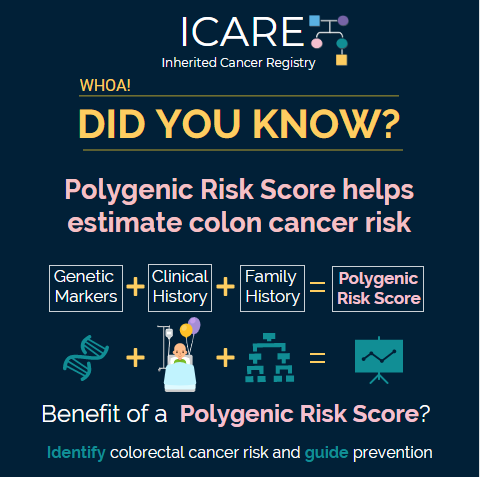 A recent study focused on how polygenic risk scores (PRS) may be related to colorectal cancers. Of note, PRS are calculated using genetic differences throughout someone’s DNA, in combination with their clinical and family history of cancer. PRS, alongside environmental and lifestyle risk factors, may help to identify people who may benefit from screening at an earlier age.
A recent study focused on how polygenic risk scores (PRS) may be related to colorectal cancers. Of note, PRS are calculated using genetic differences throughout someone’s DNA, in combination with their clinical and family history of cancer. PRS, alongside environmental and lifestyle risk factors, may help to identify people who may benefit from screening at an earlier age.
Important facts about PRS include:
- It does NOT look for changes in specific cancer predisposition genes, but rather looks at changes across many genes
- It should NOT be used to diagnose hereditary cancer predisposition.
This study was based on over 12,000 individuals less than 50 years old who were compared to almost 96,000 individuals aged 50 or older. Findings showed that PRS were higher among younger individuals, as well as those with a family history of colorectal cancer. Although this type of information is not yet ready to use in clinical practice, it might someday help to identify those who may benefit from earlier screening or surgery.
Archambault, et al. Gastroenterology. 2020 Apr. PMID: 31866242.
